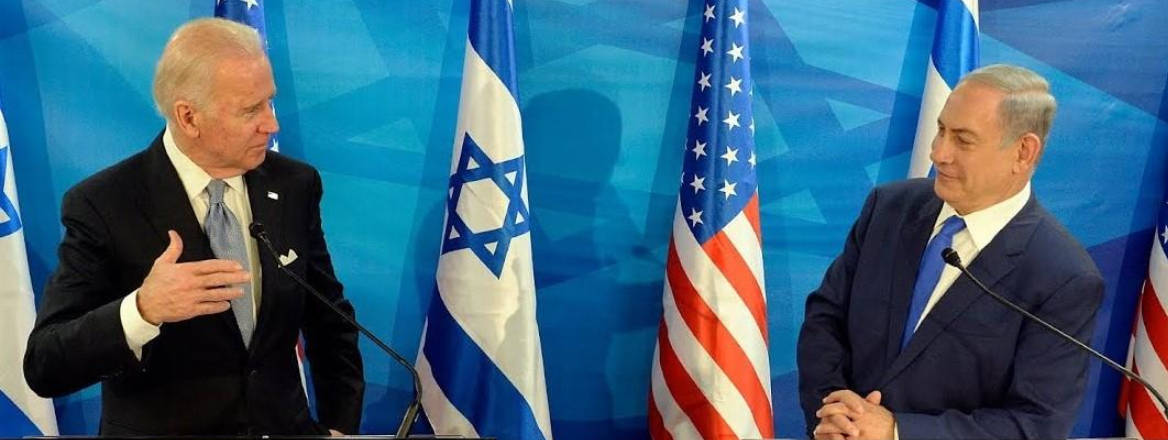The Impact of a Biden Presidency on the Middle East and North Africa
Our analysts and associate fellows look at what awaits the Biden presidency in the region.
Foreign policy may not be the first priority of Joe Biden’s administration. And even when it does lift its eyes away from dealing with domestic challenges, countering the rise of China and dealing with Russia may feature more prominently than investing US resources in the Middle East and North Africa (MENA) region. Still, the principles that are to guide the Biden administration – multilateralism and coordination with partners and allies, reliance on diplomacy and a focus on counterterrorism – indicate that, even where continuity will prevail, there will be changes in tone and approach to the ongoing MENA crises.
Iran
Aniseh Bassiri Tabrizi
Iran is arguably going to be one of the foreign policy priorities for the incoming Biden administration. The president-elect has characterised Donald Trump’s policy on Iran as a ‘dangerous failure’: it isolated the US; Iran is much closer to a nuclear bomb; and the MENA region is on the verge of military escalation.
Biden wants to offer Tehran a credible path to diplomacy and have the US rejoin the nuclear deal (the Joint Comprehensive Plan of Action, JCPOA) if Iran also returns to compliance with the deal’s obligations. While he also committed to address other issues of concern with regard to Iran, from its regional behaviour to its poor track record on human rights, he stressed the need for US sanctions not to hinder Iran's fight against the coronavirus pandemic – something that the Trump administration failed to do. Most importantly, Biden will strengthen transatlantic coordination on Iran, reversing the trends of the past four years and increasing the chances of finding a diplomatic solution and one which satisfies all the parties involved.
None of this is going to be easy. Iran will be embroiled in its own domestic issues, in preparation for the presidential election in June 2021. Mistrust will also dominate the two sides, after four years of tensions and lack of direct communication. But the incoming Biden administration will provide the first chance in a long time for concerns over the Iranian nuclear programme and escalation in the region to be addressed in a concerted and sustainable manner.
Afghanistan
Antonio Giustozzi
Afghanistan appears in Biden’s list of ‘forever wars’ that the president-elect intends to end. He wants to bring back the vast majority of US troops from Afghanistan and establish a mission narrowly focusing on Al-Qa’ida and the Islamic State, but the troops will have gone home already by the time he takes over: by January, according to the current timetable of the US–Taliban deal reached in February, there will be just 2,500 US service personnel left in Afghanistan, down from the 13,000 who were there when the agreement was reached.
Biden will face expectations by Afghan policymakers to maintain a US presence in the country. President Ashraf Ghani did not even wait for Biden’s emergence as the electoral winner before tweeting that he expects bilateral ties to ‘deepen’ under his presidency. US pressure groups devoted to advancing human and gender rights will urge Biden not to abandon the US’s allies in Afghanistan, and so will the US military, worried that the withdrawal will be perceived as another American defeat. All this could lead Biden to perhaps freeze the troop level at 2,500, while trying to negotiate additional guarantees from the Taliban. However, this number will not be enough to function as an effective deterrent against the Taliban, especially given that they are aware that Biden ultimately wants out of Afghanistan. Without a new approach, therefore, Biden’s team is likely to face a quagmire next year in Afghanistan, rather than the end of a forever war.
The Gulf
Michael Stephens
There has been a lot of speculation that the relationship between the US and the Gulf will alter dramatically – and for the worse – once Biden enters office. But this is unlikely to happen, especially given the recent rapprochement between the Gulf states and Israel, of which Biden is a big supporter. It is true that the incoming administration will work with the Gulf states in a more distanced way than the more personalised manner preferred by President Trump and Senior Advisor Jared Kushner. But this is not necessarily a bad thing, and what team Biden lacks in warmth will be replaced by consistency. The Gulf states will understand far more clearly what matters to the US, and what its rules of the game in the region will be. The Saudis, in particular, may not like these rules but they will at least be able to plan a response to them.
Biden faces a number of challenges, most notably how to assure Gulf states that his administration understands their concerns about Iran and its regional behaviour, especially in Yemen, while at the same time pursuing what looks to be a renewed commitment to the JCPOA. Additionally, given that climate change is so important to the incoming administration, we should expect this to be a pillar of engagement by the US in the years ahead given that moving off a reliance on oil and gas is now of critical importance to the Gulf states, most of whom are struggling to adjust their economies to post-Covid realities. The next four years will be critical for the stability of the Gulf both in terms of security and economy.
Israel/Palestine
H A Hellyer
Under the Trump administration, the US embassy was moved to Jerusalem; funding of the UN agency responsible for Palestinian refugees, the UN Relief and Works Agency (UNRWA), was cut; and the PLO mission in Washington was closed. Moreover, with the brokered accords between Israel and several Arab countries, the Trump administration reversed the regional consensus to hold back from such normalisation until the Palestine question was satisfactorily addressed. Despite the much vaunted ‘deal of the century’, placed into the hands of Kushner, the main points of dispute between Arab states and Israel – the Israeli occupation of the Palestinian territories, the status of Jerusalem and Israel’s refusal to allow Palestinian refugees to return to their homes – remained by the wayside.
With Biden, Palestinians can expect there to be less of a forward engagement in favour of Israel. The push for Arab states to normalise relations with Israel without a solution to the Palestine question will probably cease. Funding of UNRWA is expected to renew quickly, and the PLO mission is likely to reopen in Washington. The environment of empowerment that extends to Israel’s right/far-right-wing government will diminish significantly. However, the Biden administration is unlikely to move the US embassy back from Jerusalem to Tel Aviv, and it is doubtful that it will prioritise pursuing a solution to the occupation. If the Palestinians are looking for friends in Washington during the incoming administration’s term, they are likely to have to settle for fewer enemies instead. And, as for the Israelis, they may have to be on their toes a little bit.
Libya
Tobias Borck
There is no reason to expect the Biden administration to expend precious political capital by dramatically changing US policy towards Libya. Besides, the issue does not rank anywhere near the top of Biden’s foreign policy priorities, and it also remains laden with domestic political baggage accumulated during the last period he spent in the White House
Biden has repeatedly emphasised that he was against the 2011 intervention against the regime of Muammar Qadhafi, and in Washington, mention of Libya still evokes memories of the 2012 attack on the US consulate in Benghazi and the many subsequent Congressional inquiries that so dogged Hillary Clinton’s campaign in 2016. Democrats will be loath to bring the issue back to the surface by directing significant attention to the country.
Still, a different approach to US foreign policy — perhaps with a rejuvenated State Department, a rekindled affinity for multilateralism and less tolerance for unilateral initiatives in the Middle East by nominal US allies such as Turkey — could have an impact on Libya.
A difference in tone from Washington could provide a boost to UN efforts to mediate between Libya’s rival armed and political factions and their international backers, while changing calculations in Cairo, Abu Dhabi, Doha, Ankara and elsewhere. Either way, it is also certain that the US will continue to keep a close eye on the activities of terrorist groups such as the Islamic State and Al-Qa’ida and their affiliates in Libya and the surrounding region, as well as on those of Russia, which has a growing presence in the country.
The views expressed in this Commentary are the authors’, and do not represent those of RUSI or any other institution.
WRITTEN BY
Dr Aniseh Bassiri Tabrizi
External Author
Dr Antonio Giustozzi
Senior Research Fellow
Terrorism and Conflict
Michael Stephens
RUSI Senior Associate Fellow, RUSI International
Professor H. A. Hellyer
RUSI Senior Associate Fellow, RUSI International
Dr Tobias Borck
RUSI Senior Associate Fellow, RUSI International






